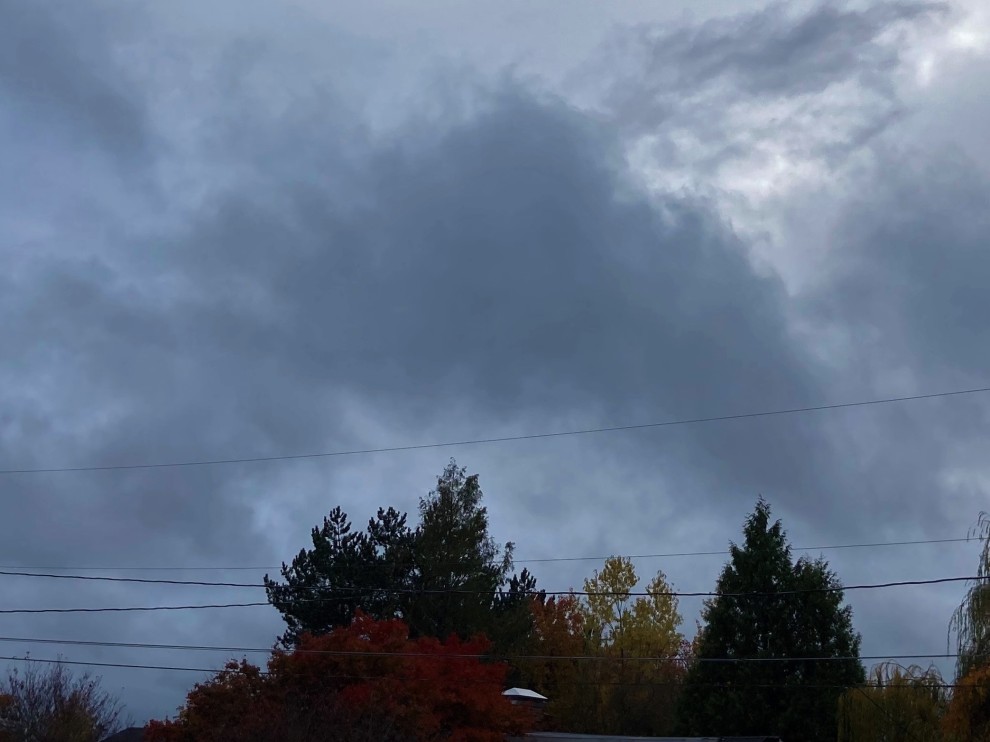
BY JOANNA WENDEL
When you find yourself stressed, feeling frazzled, overwhelmed or anxious, try pausing for a moment to ask yourself “What is going on? What am I feeling? What is causing this feeling?”
That’s the first step of practicing mindfulness, says Dinah Gilburd, a clinical social worker at Jewish Family & Child Services. And practicing mindfulness might be the best thing for our mental health right now as pandemic and political stress take a toll on us all.
In the spring and summer, we were able to tackle some pandemic-induced mental health challenges by gathering outside in the warm sun, fresh grass and blooming flowers. But now the nights creep in sooner and rain keeps us away from picnics and socially distanced get-togethers. COVID-19 cases are on the rise, and the threat of renewed lockdowns loom. We understand that the virus spreads when we interact in close contact with other people indoors.
Even if you still have a job and are surrounded by friends and family, it’s easy to get stuck in a mental spiral of doom, to feel lonely and anxious about the future. Breaking out of an anxiety spiral begins with a simple step of acknowledging that our expectations are not meeting reality, says Doug Ruth, clinical director at JFCS. Normally our expectations for fall and winter are not “stay inside separated from our friends and family.” But this year, we might be forced to do just that.
In a year full of a deadly pandemic, heightened civil rights issues and raging wildfires, “I think it can really send us for a loop,” Ruth says.
So of course, we’re all stressed, burnt out or feeling hopeless.
Most trauma or crisis includes a beginning, middle and end, Gilburd says. A hurricane lasts a few hours. The shock of a car accident or the death of a loved one fades with time. But with a pandemic, “there is no end in sight.” Every day, we are reminded that we’re still in the middle of a crisis.
It is vital that we give ourselves the space and permission to feel bad, to feel scared, to feel helpless, to not operate at 100 percent all the time. Self-care is more important now than ever, Gilburd says.
When you hear the term “self-care,” you might think of candles, expensive skincare products, drinking an extra glass of wine or overeating. But at its core, self-care means tuning in to your own needs and learning to respect and tend to those needs.
Mindfulness is an important part of self-care but is not easy to master. We’ve learned to live our lives distracted by work, TV, podcasts, books or scrolling on social media. Acknowledging the present moment is imperative.
Try it right now. Ask yourself “How am I feeling right now?” Acknowledge that feeling, don’t judge the feeling. Name the feeling. You can also try to bring yourself into the present moment by making a point to notice the things around you – the feeling of your feet on the floor, the sight of leaves on the tree outside the window or the taste of a snack in your mouth.
Practicing mindfulness a few minutes per day during a calm moment can help train your brain to use this tool in a moment of anxiety or acute stress, Gilburd and Ruth say.
And remember – you’re not alone. When you’re feeling down, reach out to a friend or a family member, or email the Congregation Neveh Shalom COVID-19 Outreach and Services team (covid19@nevehshalom.org), and we’d be happy to chat. JFCS also has a list of community resources: jfcs-portland.org/covid-19.
JoAnna Wendel is the lead communications consultant for the Congregation Neveh Shalom COVID-19 Outreach and Services team. She’s also a science writer and science cartoonist. JoAnna loves to read, paint, hike and hang out with her cat. Funded by the Oregon Health Authority, CNSCOS provides services and timely information to the Jewish communities of Multnomah, Washington and Clackamas counties.

0Comments
Add Comment